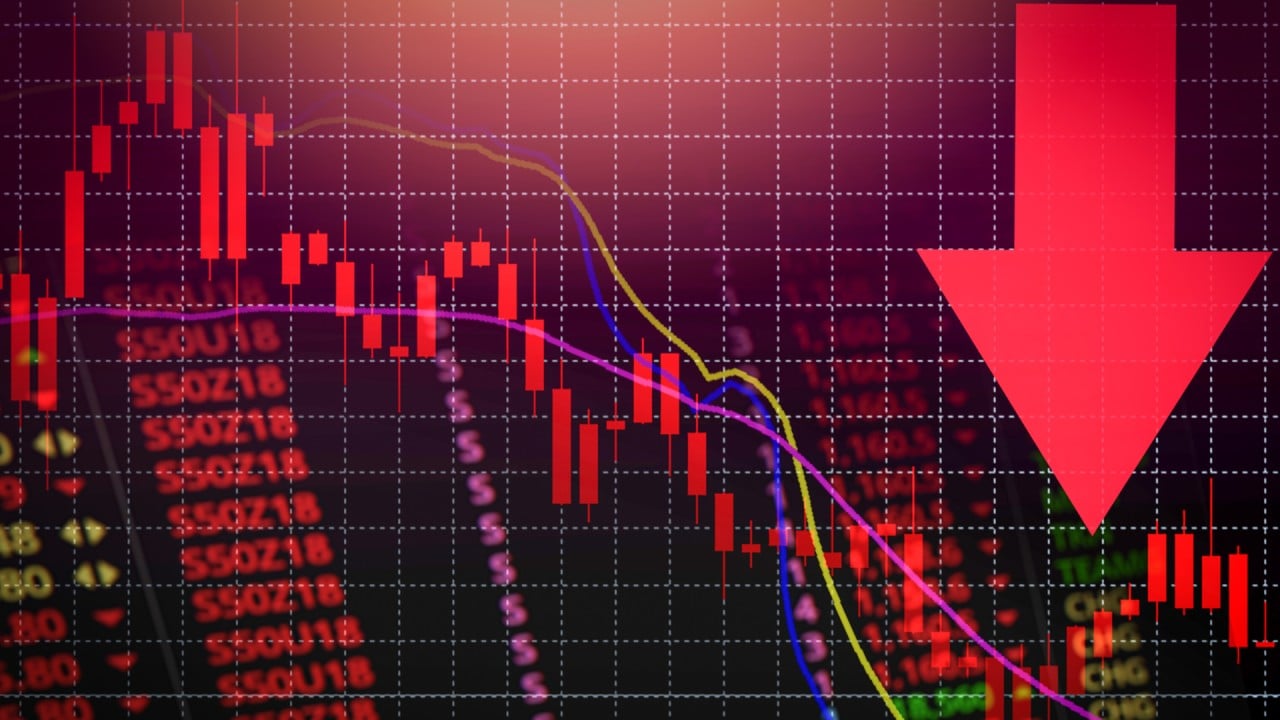
Hang Seng Index slammed by Covid-19 concerns, aerospace stocks add fuel to Shanghai bourse’s best gain in 17 months
- Hang Seng Index retreats as financial, property developers weigh on market on heightened Covid-19 concerns
- Shanghai Composite Index extends gain after an 11 per cent rally in July, with aerospace companies in focus
The Hang Seng Index fell 0.6 per cent to 24,458.13 on Monday, after logging in two straight months of advance. The Shanghai Composite Index jumped 1.8 per cent to 3,367.97. It rallied 11 per cent in July, the most since February 2019.
Financial and property stocks dragged down the Hang Seng Index. HSBC declined 4.4 per cent after the lender reported a 69 per cent plunge in first-half earning, and its unit Hang Seng Bank tumbled 2.9 per cent. Hang Lung Properties, one of the city’s biggest landlords, shed 2.7 per cent.
In China, aerospace and military stocks powered gains, as China’s Mars mission completed its first orbital correction, extending the euphoria about the sector since July. North Navigation Control, China Spacesat, CITIC Offshore Helicopter surged by the daily cap of 10 per cent.
Investors are confronted by several risk factors, including the rising cases of Covid-19 across the world as cities in the UK, Australia and the Philippines face the spectre of tighter lockdowns to curb the infections. The fraying US-China relations are worsening with the latest plan to bar Chinese-owned TikTok from the US markets.
“The whole market is looking at whether the China-US relations will further deteriorate or not,” said Castor Pang, head of research at investment services firm Core Pacific-Yamaichi. Hong Kong-based companies are leading the drops as the local economy is mired in a recession, he added.
“The impact of the pandemic [on local companies] is expected to last another six months to one year, it will cause significant shocks to their revenue and profit.”

04:36
Hong Kong stocks may remain volatile for months due to Covid-19 pandemic, says analyst Kenny Wen
The bright spot, however, came in the form of Chinese manufacturing rebound. The Caixin/Markit Manufacturing PMI gauge rose to 52.8 in July from 51.2 in June, the highest level since January 2011, according to today’s report. It exceeded the 51.3 consensus among economists surveyed by Reuters.
“Sell sides are revising up their expectations for earnings as China’s economy is bottoming out when the pandemic is under control on the mainland,” said Carl Cai, a strategist at SPDB International, who predicts stocks in Hong Kong and on the mainland will continue to rise in August.
“Liquidity is very abundant, which is supportive both domestically or globally, and capital inflow to the stock market will continue,” he added. “But fluctuations will be big mainly because of uncertainties surrounding the US-China relations, as US politicians may play their China cards before the November presidential election.”
Elsewhere in the US, the Trump administration is seeking to bar TikTok from the US market on security reasons, worsening the trade and tech war. ByteDance, the Chinese owner of TikTok, is said to prefer spinning off the business.
Investors are also watching closely the rising tensions between China and the US. Besides Tik Tok, a video-sharing social network app developed by a Chinese company, other Chinese tech firms software may face more scrutiny from Washington.

